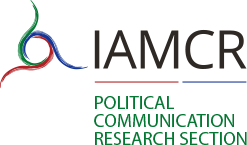
The Political Communication Research section will be holding elections for two co-chair and two vice-chair positions, for the term 2023 – 2027.
The elections will be held online from 31 May until 16 June using the SurveyMonkey platform.
Individual members and representatives of institutional members in good standing, who are also registered as members of the Political Communication Research section will be eligible to stand for a position and to vote. To verify if you are a member of the POL section, log in to your account and click on "My Sections and Working Groups".
The deadline to receive candidate statements was 17 May.
Read about the Political Communication Research section
More information and timeline at https://iamcr.org/s-wg/elections2023
Candidates
For co-chair:
- Martín Echeverría (Autonomous University of Puebla, México)
- Yuan Zeng (University of Leeds, United Kingdom)
For vice-chair:
- Amélia Aben Athar Olinto Ramos (Fluminense Federal University, Brazil)
- Sara García Santamaría (Universitat Oberta de Catalunya, Spain)
- André Haller (University of Applied Sciences Kufstein Tyrol, Austria)
Martín Echeverría (Autonomous University of Puebla, México)
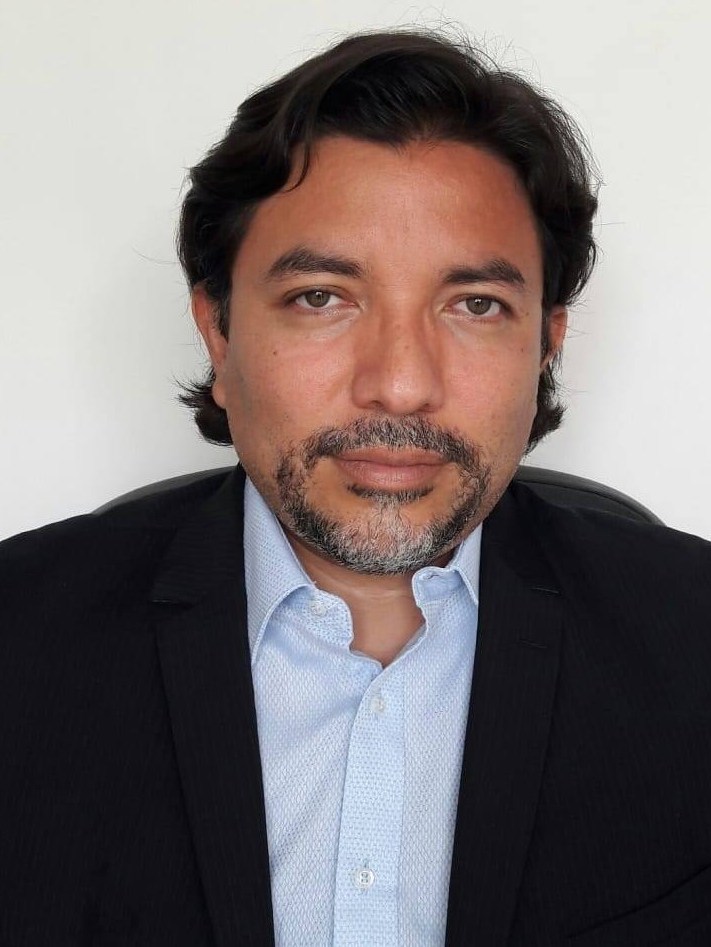
For your consideration, I ask for your vote as a co-chair of the Political Communication Section (2023-2027) for the following reasons:
Firstly, I think that my experience as a vice chair will be very helpful in carrying out the multiple and complex tasks of this section. Along with my colleagues, we have organized the 2020, 2021, 2023, and 2023 conferences with online and offline components. This entails writing and issuing the Call for Papers, getting to know the system, reviewing dozens of abstracts, organizing the program, and chairing sessions. These abilities have been honed and make the conference run smoothly. Additionally, during my tenure as Vice Chair, we have organized webinars, events, and an edited book comprising 18 chapters and nations (which has been greenlit by Routledge and is pending a contract). I think the section is a more lively academic space than four years ago.
Secondly, and as a global south scholar, my vision for the section rests upon diversity, either of scholarly regions (global north and south scholars), career stages (early or senior scholars), methods (from computing to qualitative ones), or epistemologies (from phenomenology to positivism). No methods or epistemologies are seen as outdated or less complex, but they are helpful in answering an array of general and context-bound questions. This principle informs my criteria for the organization of the conference as well as other activities I strive to promote, such as events, webinars, book presentations, and edited books.
I am a full professor at the Center of Studies in Political Communication, Autonomous University of Puebla, one of the top universities in Mexico (QS and THE University rankings). My work has been published in the International Journal of Press/Politics, International Journal of Communication, Media and Communication, Journalism Studies, Journalism Practice, the Journal of International Communication, and Communication & Society, as well as other leading Latin American journals. My recent books are “Political Entertainment in a Post-Authoritarian Democracy: Humor and the Mexican Media” (Routledge, in press, 2023) and “Media and Politics in post-authoritarian Mexico. The continuing struggle for democracy” (2022, Palgrave McMillan, in press), as well as other books in Spanish.
As a global south scholar, I commit to promoting a constant and respectful dialogue between scholarly communities around the globe and making the section an apt venue for scholars to improve and promote their work with their peers.
Sincerely,
Martin Echeverria
Yuan Zeng (University of Leeds, United Kingdom)
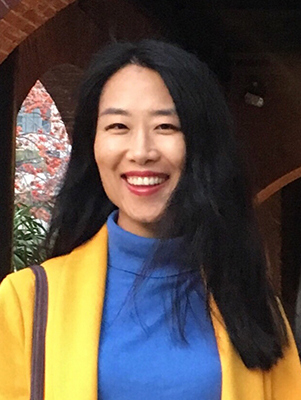
I obtained my PhD from City University of Hong Kong in 2018. My doctoral dissertation, drawing on Bourdieu’s field theory to dissect China correspondents’ news production, has been subsequently published by Routledge in 2019 (Reporting China on the Rise: Habitus and Prisms of China Correspondents).
Since joining the University of Leeds as a lecturer in Media and Communication in 2019, my research interests have been broadly in the interplay between media and politics. My current work focuses on the role of social media in China’s political communication and political meaning-making. In 2023, I co-founded the ‘Media and Civil Resistance’ working group based at the School of Media and Communication, University of Leeds. The working group aims to contribute to better engaging scholarly discussion and networking research resources in relation to the interplay between media, technology, regimes, civil resistance, and social movements, with a particular focus on the role and impact of new media in mobilising and sustaining non-violent civil resistance in Global South.
I have published research articles in major media and communication journals including International Journal of Communication, European Journal of Communication, and Journalism. I have also been invited to contribute to several important edited books including ‘Political Communication in the Time of Coronavirus’ (edited by Peter Van Aelst and Jay Blumler) and ‘Handbook of Digital Politics’ (edited by Stephen Coleman and Lone Sorensen). I am a regular reviewer for major journals including Journalism Studies, Journalism, International Journal of Press and Politics, Chinese Journal of Communication, International Journal of Communication, etc. For my expertise on media and political communication in China, I have also been interviewed on by several international news outlets including the New York Times, Reuters, Washington Post, and Agence France-Presse.
As a longtime member of POL section, I have hugely enjoyed and benefited from the invaluable networks and resources the section has to offer especially to early-career researchers. Now I am keen to serve the community in a different (though much more demanding) capacity as a co-chair of POL section.
Dr Yuan Zeng
Lecturer in Media and Communication, University of Leeds
https://ahc.leeds.ac.uk/media/staff/2168/dr-yuan-zeng
Email: y.zeng@leeds.ac.uk
Amélia Aben Athar Olinto Ramos (Fluminense Federal University, Brazil)
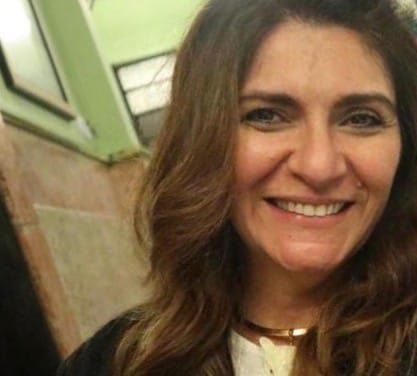
My name is Amélia Aben Athar Olinto Ramos and I am a doctoral candidate in Communication at Fluminense Federal University in Rio de Janeiro, Brazil. I would like to apply for the role of Vice-chair for the Political Communication Research (POL) session.
I have been a member of IAMCR since 2016 and I have always participated in this session because it aligns with the focus of my academic research. I decided to apply because IAMCR is the most important association in my field of Communication, and it has played a fundamental role in shaping me as a researcher and as a person.
In 2016, I presented my work "Democracy drowned in Numbers: Election Polls and News Reporting in Brazil's 2014 Presidential Campaign" at the conference in Leicester, UK. In 2017, I presented a paper titled "The Role of Election Polls in Newsmaking in the 2014 Brazilian Presidential Elections" in Cartagena das Indias, Colombia. That same
year, I applied for and won the Travel Grant. In 2021, at the online congress in Nairobi, Kenya, I was approved to present my work "Award-winning News stories on issues of human rights: Analyzing the Brazilian political scenario." I also received an invitation to chair one of the conference's online panels that year.
Based on my experience attending many IAMCR conferences, I feel that I am well qualified to apply for the role of Vice-chair for the Political Communication Research (POL) session. I have good fluency in English and Spanish, and I also have a good understanding of French, which would be beneficial for performing the role.
Sara García Santamaría (Universitat Oberta de Catalunya, Spain)
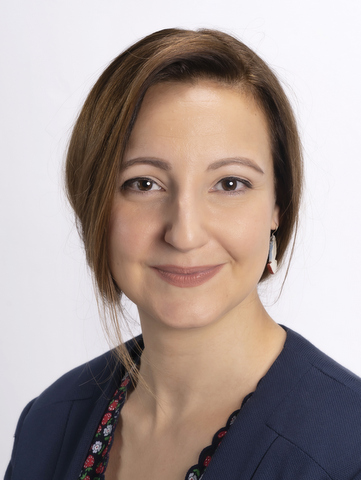
I am thrilled to seek re-election as vice-chair of IAMCR’s Political Communication Research Section. I am currently a postdoctoral researcher and an UKRI/Marie Skłodowska-Curie fellow working between Universitat Oberta de Catalunya (Spain) and University of Bristol (UK). I come from an interdisciplinary background in Political Communication, Journalism and Cultural Studies. Over the last few years, I have been carrying out an ethnography of politicians’ use of digital storytelling practices and their impact in the field of Political Communication. My current research focuses on political leaders’ performances of an authentic (yet staged) connection with their followers via social media. This topic is of great importance in a hybrid media system in which personal trust becomes essential for deciding who and what to believe.
Drawing on my own experience, I greatly value the richness of working in networks with a distinctly critical, global outlook. I have developed my career in six countries - the United Kingdom, France, Spain, the United States and Cuba. These experiences have allowed me to take an active role in international projects that are strongly committed to the de-westernization of political communication, such as the Media and Governance in Latin America network, Varieties of Democracy and the Global Media Monitoring Project. I am also part of two research groups working on digital storytelling (Mediaccions) and political disinformation (MediaFlows). My work has been published in high-ranking journals, such as Digital Journalism, Media and Communication, or Humanities & Social Sciences Communications, and I have coedited books with leading publishers, such as Routledge, Peter Lang or University Press of Florida.
Over the last four years, it has been a pleasure to get to know IAMCR’s vibrant community from the inside. Serving as vice-chair of the Political Communication section has given me unique insights into IAMCR’s dynamics, as well as our community’s demands. Throughout these years, I have contributed to creating new opportunities for our section members in three key areas: (1) the edition of peer-review international publications, (2) successful funding applications for section-led events, and (3) the organization of our 2023 Lyon pre-conference.
Working with my colleagues has been a rewarding process of constant collective learning. From the outset, we became aware of the section’s main challenges and traced clear guidelines to meet our priorities. I now feel privileged for having participated in the transformation of our Section into a more inclusive, participatory, and active space. These goals are very much in line with our section’s focus on diversity and impact.
As vice-chair, my priority is to continue building a diverse section that is able to respond to its members’ demands. Throughout my career, I have repeatedly observed remarkable power imbalances. These imbalances have to do with structural problems, such as precarious working conditions and restrictions to global mobility, but also with our own biases. I will continue this transformation by encouraging the participation of young and non-western scholars in our projects and by putting the Section at the service of their own initiatives.
I believe that engaging with a broader academic community is one of IAMCR’s pending tasks. That is why, in my second term as vice-chair of the Political Communication section, I work towards expanding our reach. In the near future, I would like to see a diverse and participatory Section that truly serves our academic community.
Sincerely,
Sara
André Haller (University of Applied Sciences Kufstein Tyrol, Austria)
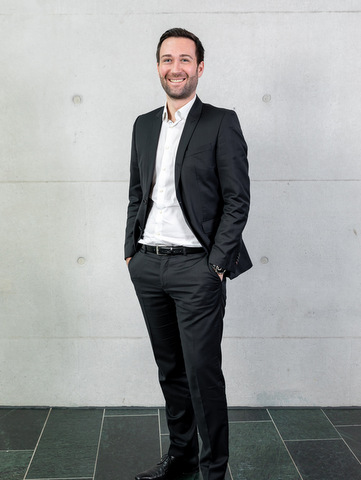
Dear colleagues,
I am currently serving as one of the Vice Chairs of the Political Communication Research Section of IAMCR and I would like to apply for another term in office.
I am Professor for Marketing, Communication Management and Digital Marketing at University of Applied Sciences Kufstein Tyrol in Austria. My areas of research focus include strategic and political Communication, particularly the digital transformation of political campaigns and partisan “alternative” media, as well as research on crisis and scandal communication. My works are published in journals like Information, Communication & Sociery, the Journal of Alternative and Community Media and the Journal of Applied Journalism & Media Studies. I presented my studies at conferences of IAMCR, ICA and German associations like DGPuK. Every two years I co-organize the International Conferences in Scandalogy at University of Bamberg, Germany. A main concern of my work is to connect researchers from every continent to intensify scientific exchange, especially in the IAMCR.
Together with our Chair Marie Grusell and our Vice Chairs Sara Garcia and Martín Echeverría we co-organized the last conferences and offered a wide range of section offers such as a new e-mail newsletter, our Facebook group and several online lectures with colleagues from all over the world. It would be a pleasure and an honor to serve as a Vice Chair for four more years.
Best regards,
André